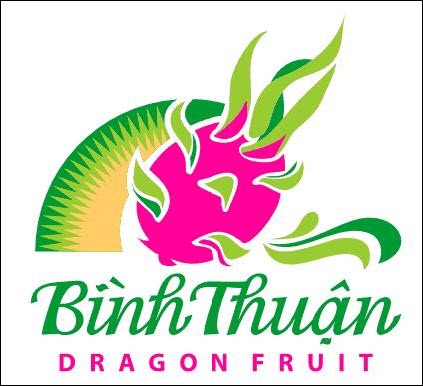 |
| The brand identifies blue dragon fruit of Binh Thuan province in the US (www.bttv.org.vn) |
(VOVworld) – The southern province of Binh Thuan is famous across the country for its blue dragon plants. In the past, blue dragons were grown as decorative plants, however the tree has now become a big hard currency earner for the province helping to reduce local poverty levels amongst farmers and some have even become better off. The province has been attempting to improve the quality of the export fruit to ensure sustainable growth. A report by VOV’s To Tuan.
Up to 85% of the total output of blue dragons grown in Binh Thuan and several other southern provinces are for exports and most are fresh. In recent years, Vietnamese blue dragons have dug a firm foothold in nearly 20 countries and territories, after they dealt with trade barriers on food hygiene and safety in demanding markets. Each year, Vietnam earns about 20 million USD from selling 35,000 tons of blue dragon fruit overseas. However in the Asian market, China remains Vietnam’s major importer, but only a maximum of 4% of the total fruit is exported legally. Bui Dang Hung, President of Binh Thuan’s Blue Dragon Growers Association, says ‘The advantage of cross-border trading in small amounts is that it is simple, usually with no contract to fulfill and easy to clear stockpile within 10 days. This method of trading is useful when the fruit is in full harvest. The disadvantage is that it involves different components in a transaction, while the management of trading is loose, which leads to a lack of food safety and hygiene and unstable prices. This is our challenge and we are very worried. We have realized the importance of standardizing production, to see a long term and sustainable growth. Ensuring safety both in production and distribution means fewer risks when trading’.
Major markets such as the US, Canada, Japan and Europe often require blue dragon growers to reach certain standards, ranging from method of collection and purchasing to packaging and preserving. Ngo Xuan Nghiem, the owner of fruit producing business in Binh Thuan, says ‘It’s difficult to change the traditional farming methods used by Vietnamese farmers. The old methods are a hurdle for them now the country is a member of the WTO. To be able to export blue dragon fruit sustainably, Vietnamese farmers should change their traditional ways of farming and apply advanced technologies, in which food hygiene and safety must be a top priority’.
Binh Thuan will soon have 7,300 hectares of land to cultivate blue dragon fruit, which has been licensed by ‘Vietnam’s Agricultural Practices standard’. Nearly 160 hectares of the fruit are also being grown in accordance with the Global Good Agricultural Practice, and 1,140 hectares have been classed as suitable for quarantine purposes and the fruit can be exported to the US and the Republic of Korea. 80 companies in Binh Thuan have built processing plants and now purchase wholesale. Bui Dang Hung is President of Binh Thuan’s Blue Dragon Growers Association noting ‘The local farmers strongly agreed and supported the application of the national agriculture practices standards to the farming. Many enterprises have spent tens of thousands of USD to develop programs in line with Global GAP or Euro GAP standards to improve product quality, and meet the markets’ demanding requirements. Over the past year, the provincial Center for Blue Dragon Research has licensed 5,000 hectares for cultivating the fruit to VIET GAP standards’.
Last year, Vietnamese exports of blue dragon fruit to Japan and the US almost doubled from the previous year, rising to 420 and 880 tons respectively. In the European market, Vietnamese blue dragons are now available in France, the UK and Germany, after the fruit successfully conquered the Netherlands. In the first half of this year, the fruit also penetrated the Republic of Korean and New Zealand markets. To expand the country’s market share, the Government is now working with businesses to build transaction centers, preliminary processing systems and cold storage factories to keep the fruit fresh.
To Tuan